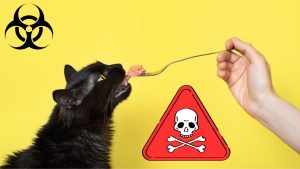Effective Solutions for Your Furry Friend
If you’re a dog owner, you know how difficult it can be to see your furry friend constantly scratching and biting themselves. It’s not only uncomfortable for them, but it can also be frustrating for you. There are many reasons why dogs itch, ranging from allergies to parasites, and it’s important to identify the underlying cause to effectively treat the problem.
Fortunately, there are several steps you can take to help stop your dog from itching. First, it’s important to maintain good hygiene by regularly bathing your dog with a gentle shampoo and brushing their coat to remove any loose fur and debris. Additionally, you can try using home remedies such as oatmeal baths or coconut oil to soothe your dog’s skin. However, it’s important to note that these remedies may not work for all dogs and it’s always best to consult with your veterinarian before trying any new treatments.
If your dog’s itching persists, it may be a sign of an underlying health issue such as allergies or skin infections. In these cases, your veterinarian may recommend prescription medication or a change in diet to address the problem. By working with your veterinarian and taking proactive steps to maintain your dog’s hygiene, you can help stop your dog from itching and keep them happy and healthy.
Identifying the Cause of Your Dog’s Itching
When our furry friends start itching and scratching excessively, it can be a sign of an underlying issue that needs to be addressed. In order to help our dogs find relief, we need to identify the cause of their itching. Here are some common causes of itching in dogs:
Allergies
Just like humans, dogs can have allergies that cause itching. Environmental allergens like pollen, mold spores, and dust mites can cause allergic itch during certain seasons or even year-round. Food allergies can also be a culprit. If you suspect that your dog has allergies, consult with your veterinarian to determine the best course of action.
Parasites
Fleas, ticks, and mites can all cause itching in dogs. If you notice your dog scratching and biting at their skin, it’s important to check for these parasites. You may also notice redness or inflamed skin in the affected areas. Your veterinarian can prescribe medication to get rid of these pests and provide relief for your dog.
Infections
Bacterial and yeast infections can also cause itching in dogs. These infections can be caused by a variety of factors, including allergies, parasites, and hot spots. If you notice your dog scratching excessively and the affected area is red, inflamed, or has a foul odor, it’s important to see your veterinarian.
Bug Bites
Just like humans, dogs can get bug bites that cause itching. Mosquitoes, flies, and ants are just a few examples of insects that can cause itching in dogs. If you notice your dog scratching at a particular spot, check for a bug bite. You can apply a topical cream or spray to provide relief for your dog.
By identifying the cause of your dog’s itching, you can help them find relief and prevent further discomfort. If you’re unsure of what’s causing your dog’s itching, consult with your veterinarian for guidance.
Common Causes of Itching in Dogs
If your furry friend is constantly scratching, licking, or biting their skin, it’s likely they’re experiencing some discomfort. There are several reasons why your dog may be itching, including:
Flea and Tick Infestation
Fleas and ticks are common parasites that can cause your dog to itch. Fleas are especially notorious for causing excessive scratching, hair loss, and skin irritation. Flea bites can also lead to an allergic reaction known as flea allergy dermatitis (FAD). Ticks, on the other hand, can transmit diseases such as Lyme disease, which can cause itching, swelling, and redness.
Food Allergies
Just like humans, dogs can also have food allergies. Common allergens include beef, chicken, eggs, wheat, corn, and soy. When your dog is allergic to a certain food, their immune system will react, causing inflammation and itching. Other symptoms of food allergies in dogs include diarrhea, vomiting, and skin rashes.
Environmental Allergies
Your dog may also be allergic to environmental triggers, such as pollen, mold spores, or dust mites. Environmental allergens can cause allergic itch during certain seasons or even year-round. In addition to itching, your dog may also experience redness, swelling, and hair loss.
Skin Infections
Skin infections, such as yeast or bacterial infections, can also cause itching in dogs. These infections can be caused by a variety of factors, such as excessive moisture, allergies, or wounds. Symptoms include redness, swelling, and hair loss.
It’s important to note that excessive itching in dogs can also be a sign of an underlying medical condition. If your dog is excessively itching, it’s best to consult with your veterinarian to rule out any serious health concerns.
In the next section, we’ll discuss some of the ways you can treat and prevent itching in dogs.
Preventing Itching in Dogs
As pet parents, we want our furry friends to be happy and healthy. One way to ensure their comfort is by preventing itching. Here are some ways to prevent itching in dogs:
Flea and Tick Prevention
Fleas and ticks are common culprits of itching in dogs. These pesky parasites can cause skin irritation and even transmit diseases. To prevent fleas and ticks, use a flea and tick preventative recommended by your veterinarian. Regularly check your dog for any signs of fleas or ticks and remove them immediately.
Environmental Management
Environmental factors can also contribute to itching in dogs. Dust, pollen, and other allergens can cause skin irritation. Keep your dog’s environment clean and free of allergens. Vacuum regularly and wash your dog’s bedding frequently. Consider using air purifiers to reduce allergens in the air.
Dietary Changes
Dietary changes can also help prevent itching in dogs. An elimination diet can help identify any food allergies your dog may have. Consider switching to a high-quality dog food that contains omega-3 fatty acids, which can help reduce inflammation and itching. Fish oil supplements can also be beneficial for dogs with itchy skin.
In addition to dietary changes, bathing and brushing your dog regularly can help prevent itching. Use a gentle, hypoallergenic shampoo and avoid over-bathing, which can strip the skin of natural oils. Brushing your dog’s coat regularly can help remove any allergens or irritants that may be causing itching.
Overall, preventing itching in dogs requires a combination of flea and tick prevention, environmental management, and dietary changes. By taking these steps, we can help ensure our furry friends are comfortable and happy.
Treatment options for itching in dogs
If your dog is constantly itching, it’s important to seek advice from a veterinarian to determine the underlying cause. Depending on the cause of the itching, there are several treatment options available. In this section, we will discuss the most common treatment options for itching in dogs, including medications, topical treatments, and home remedies.
Medications
In some cases, your veterinarian may prescribe medications such as antihistamines or anti-inflammatory steroids to help manage excessive itching in dogs. While these medications can offer tremendous relief, they can also have potential side effects and impact your dog’s long-term health. It’s important to follow your veterinarian’s instructions carefully and monitor your dog closely for any adverse reactions.
Topical treatments
Topical treatments such as dog shampoos, apple cider vinegar, aloe vera, and essential oils can be used to help soothe and relieve itching. For example, oatmeal baths can help to relieve dry skin and reduce inflammation, while flea treatments can help to eliminate fleas and prevent itching caused by flea bites. It’s important to choose topical treatments that are safe for dogs and to follow the instructions carefully.
Home remedies
There are several home remedies that can be used to help relieve itching in dogs. For example, adding fish oil to your dog’s diet can help to reduce inflammation and promote healthy skin and coat. An elimination diet can also be used to determine if your dog has any food allergies that may be causing the itching. Additionally, avoiding exposure to allergens such as dust and grass can help to reduce itching caused by allergic reactions.
It’s important to note that while home remedies can be effective, they should not be used as a substitute for veterinary care. If your dog is experiencing excessive itching, redness, or hot spots, it’s important to seek advice from a veterinarian to determine the underlying cause and develop an appropriate treatment plan.
When to See a Veterinarian
If your dog is excessively scratching, licking, or biting their skin, it is important to take action. While some mild itching can be normal, frequent scratching could indicate a medical problem that requires veterinary attention. Here are some signs that it’s time to take your furry friend to the vet:
- Inflamed skin: If you notice that your dog’s skin is red, swollen, or has a rash, it could be a sign of an allergic reaction or skin infection. Inflamed skin can be caused by many things, including allergens, parasites, and bacteria. A veterinarian can diagnose the underlying cause and recommend treatment.
- Hot spots: Hot spots are areas of the skin that are inflamed, infected, and painful. They can develop quickly and can be caused by a variety of factors, including allergies, parasites, and skin trauma. It is important to seek veterinary care for hot spots, as they can quickly worsen and lead to serious skin problems.
- Dry, flaky skin: If your dog’s skin is dry, flaky, or scaly, it could be a sign of an underlying skin problem. Dry skin can be caused by a variety of factors, including allergies, parasites, and hormonal imbalances. A veterinarian can diagnose the underlying cause and recommend appropriate treatment.
- Persistent scratching or licking: If your dog is constantly scratching or licking their skin, it could be a sign of an underlying medical condition. Persistent scratching or licking can lead to hair loss, inflamed skin, and even wounds. A veterinarian can determine the underlying cause and recommend appropriate treatment.
Overall, if you notice any signs of skin problems in your dog, it is important to seek veterinary care. A veterinarian can diagnose the underlying cause of your dog’s itching and recommend appropriate treatment. As dog owners, we want our furry friends to be healthy and happy, and seeking veterinary care is an important part of achieving that goal.
Frequently Asked Questions
How can I relieve my dog’s itching?
There are several ways to relieve your dog’s itching. You can give them a bath with a gentle shampoo, use a cool compress on the affected area, or apply a soothing cream. You can also try using an anti-itch spray or giving your dog an oatmeal bath. If the itching persists, you should consult with your veterinarian.
What are some home remedies for dog itching?
There are several home remedies that can help relieve your dog’s itching. You can try applying coconut oil, apple cider vinegar, or aloe vera to the affected area. You can also try giving your dog a fish oil supplement or adding turmeric to their food. However, it is important to note that not all home remedies are safe or effective, so you should consult with your veterinarian before trying any new treatments.
Why is my dog scratching his belly with his hind legs?
If your dog is scratching his belly with his hind legs, it could be a sign of fleas or allergies. Fleas can cause intense itching and irritation, while allergies can cause skin inflammation and itching. You should check your dog for fleas and consult with your veterinarian if you suspect allergies.
What can I spray on my dog to stop itching?
There are several anti-itch sprays available that can help relieve your dog’s itching. Some popular options include aloe vera spray, tea tree oil spray, and witch hazel spray. However, it is important to note that not all sprays are safe or effective, so you should consult with your veterinarian before using any new products on your dog.
What are some oral remedies for dog itching?
There are several oral remedies that can help relieve your dog’s itching. Some popular options include omega-3 fatty acid supplements, antihistamines, and corticosteroids. However, it is important to note that not all oral remedies are safe or effective, so you should consult with your veterinarian before giving your dog any new medications.
How can I stop my dog from scratching and biting himself?
There are several ways to stop your dog from scratching and biting himself. You can try using an Elizabethan collar to prevent your dog from accessing the affected area, or you can try distracting your dog with toys or treats. You can also try using a bitter spray on the affected area to discourage your dog from licking or biting it. If the itching persists, you should consult with your veterinarian for additional treatment options.
Author
-

Jess is a lifelong pet lover, known for her profound passion for animals. With a wide range of pets, from cats and dogs to fish and hamsters, she has experienced the joys and challenges of pet ownership firsthand. Her writing captures the unique bond between humans and pets, sharing heartwarming anecdotes and practical advice. Jess’s deep understanding of animal behavior and commitment to responsible pet care make her a valuable resource for fellow pet enthusiasts. Through her words, she continues to inspire and educate, fostering meaningful connections between humans and their beloved furry companions.









